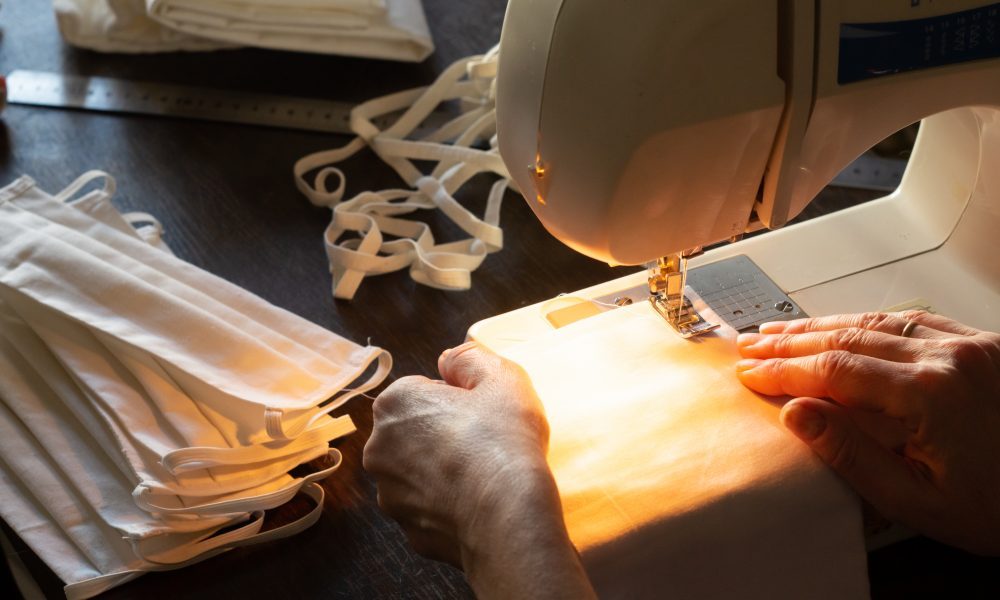
Imprima. Italian Textile Printing Holding
Interview with Tiziana Bonacina – CFO Imprima Group

IMPRIMA – Group founded in 2017 by the Italian fund Wisequity IV, Imprima is the leading European multinational textile printing and finishing company. It is legally established in Milan, with production plants in Bulgarograsso (COMO) and Lonate Pozzolo (VARESE), and companies in Italy, Germany, United States, China, Brazil and Morocco. It has an annual revenueof more than 120 million euros and has 500 employees.
Could you tell us about the Imprima Group, how was it born, which are its strengths and how it has evolved between 2017 and 2020?
Imprima Group is a great industrial project that starts in 2017, with the initiative of Wisequity IV fund and a very precise goal: create a textile printing and finishing center, a big textile company able to do digital printing, through the acquisition of other companies. Hence, many important and historical companies in this field have been acquired, such as Guarisco, Set and B-Blossom in Italy, KBC in Germany, City Prints and Premier Fabric in the USA and afterwards we also opened in Tangeri, Morocco, a center for supplying finished garments, so not only fabrics.
The birth and development of the Imprima Group have been accompanied by investments worthy of the ambitious project: we invested over 30 million euros in technologies and we have started a new production plant in Bulgarograsso which is at present one of the best in Europe for textile digital printing.
Surely it wasn’t and it is not easy to manage together in the same manner many companies each with its own reality., previously competitors on the same market; but we are at a good stage towards our primary objective, namely a complete integration of the manufacturing, commercial, management, information technology and financial plan. Ours is a volume business and it was necessary to grow up in terms of dimensions in order to be internationally competitive. All businessmen that accepted to merge their companies in the Imprima Group have fully embraced this aspect and understand that losing this opportunity would have caused the loss of growing business opportunities.
Nowadays, Imprima is the biggest European group in the field of textile printing. We are working with the most important fast fashion brands and our strengths are: service and speed (two main features in our sector), a great attention to the sustainability topic, a technological innovation, European creativity, a global approach and the ability to manage our business by focusing on production and commercial strategic aspects.
What the main impact of Coronavirus emergency on Imprima Group? Which are the main difficulties you are facing and how are you managing them?
We are working for big fast fashion and retail brands, and in this period, not only in Italy, but also all over the world, retail shops are closed, or at least are working less than before. Hence, we are recording a reduction of orders, we are having trouble in the supply of raw materials (that we partially buy from China), we suffer a sort of commercial network paralysis (our sales managers cannot meet customers and prospects), and we have big production plants in Lombardia, which is one of the worst hit areas in the world. In this context, we had a huge impact and the period we are going through is very hard.
We are following all rules and laws, we are putting our employees’ health at the first place and we are waiting for the end of this pandemic and the chance of restarting at the highest level. In the meantime, we are operating in terms of containing costs, helping our customers (who are asking for an extension of payment periods) and are also producing masks in one of our two factories.
Through a company of our Group (Guarisco Class Srl of Grandate, near Como), we are offering high quality masks that are “lighter”, and are not conceived to be used in hospitals or as DPI, though for a civilian use, by common people in their daily lives. Imprima’s masks measures 20 cm X 15 (completely covering nose, mouth and chin), are made of cotton (97,5%) and elastane (2.5%), and a strip made of polyester (89%) and elastane (11%). weigh 165gr/m2 They are washable at 60 °C, are 100% Made in Italy and can be reused up to ten times.
The Coronavirus emergency forced many companies to adopt with very short notice smart working solutions for their employees. Could this become an opportunity for the future?
This could be a great opportunity, also able to push many companies to innovate and invest in technology and information technology. I believe in smart working as a way of working to use only wherever it is meaningful, while not taken as an alternativeforoffice work. I work very well from home; I save time and energies (two hours’ drive) and I can be more focused. Moreover, smart working has been partially adopted as operating mode by all main multinationals for years. Before entering in the Imprima Group, I’ve worked in the USA and in London and I realized that smart working in the USA and in England is a standard practice. Italy in very slow on this front and is behind the others. Now we have the historical chance to make a step forward.
Environmental sustainability is nowadays a central topic in the textile world. What is Imprima’s approach on this front?
Nowadays being eco-friendly in the textile field, is very important both in ethical and competitive terms. Our customers ask us more and more for eco-friendly fabrics with traceability along the entire supply chain. Imprima Group invested a lot in this area, also recently. For instance, in the plant of Lonate, we recently tested a new purifier costing around half a million euros.

